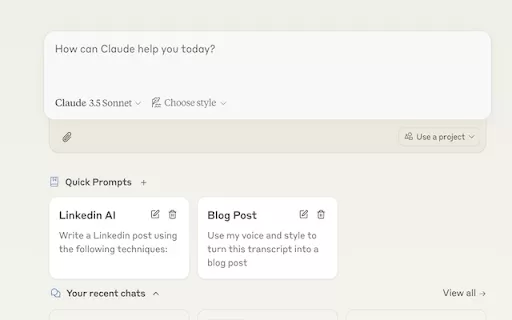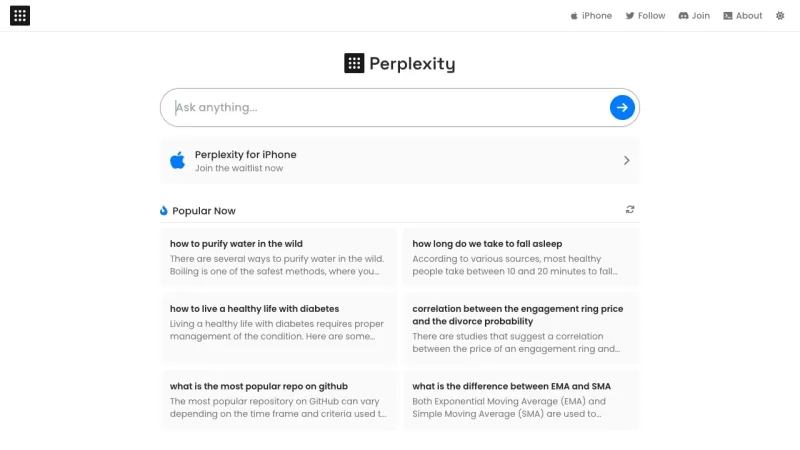Unveiling the Mystery: Delving into the Perfect Idol's Persona and Secrets

 May 5, 2025
May 5, 2025

 DavidGonzález
DavidGonzález

 0
0
The world of idols is truly mesmerizing, a place where carefully crafted personas meet the deep desires of their devoted fans. But what's behind the curtain? Let's dive into the art of creating the 'perfect idol,' exploring the elements that make them so appealing, and questioning the fine line between reality and the image they project. We'll uncover the secrets, the lies, and the truths that shape the bond between idols and their audiences.
The Foundations of a Perfect Idol Persona
What is a Perfect Idol Persona?
The perfect idol persona isn't about being genuinely perfect; it's about crafting an image that strikes a chord with fans. It's a mix of talent, charisma, and just the right amount of vulnerability to forge a deep connection and inspire. This image is the heart of the idol's brand, influencing everything from their music and fashion to how they interact with fans.
The idol persona rests on several key pillars:
- Talent and Skill: Idols are expected to excel in singing, dancing, and performing. Constant improvement is a must.
- Visual Appeal: Looks matter, with idols often fitting into beauty standards and investing in their style and presentation.
- Personality and Charisma: A captivating personality is key for engaging fans and creating a sense of closeness. Think warmth, humor, and relatable vulnerability.
- Storytelling and Narrative: An idol's journey, complete with struggles and triumphs, forms a compelling story that resonates with fans, forging a strong emotional bond.
- Strategic Communication: Every post, interview, and interaction is carefully planned to keep the persona intact and connect with the audience.
The 'idol lie' is the art of selectively presenting oneself to create a desired impression. It's not about deceit but about emphasizing certain traits, downplaying flaws, or even adding a bit of fiction to enhance the story. This crafted persona helps idols shine in the media and build lasting connections with fans. Balancing authenticity with this crafted image is a constant juggling act, influenced by fan expectations, industry demands, and the idol's own wishes.
The Role of the Media in Shaping the Idol Image
The media is a powerful force, amplifying the idol's persona to a vast audience. Through carefully planned interviews, features, and TV appearances, the media builds a narrative around the idol, reinforcing their image and cementing their place in the public eye.
- Strategic Partnerships: Agencies often team up with media outlets to control information flow and ensure positive coverage.
- Controlled Exposure: Every appearance and interview is chosen to highlight the idol's strengths and reinforce their brand.
- Image Management: Strategies are in place to handle negative publicity and protect the idol's reputation.
 This proactive approach is crucial for maintaining the illusion of perfection and keeping scandals at bay.
This proactive approach is crucial for maintaining the illusion of perfection and keeping scandals at bay. - Social Media Amplification: Idols use social media to connect directly with fans, sharing curated glimpses of their lives and strengthening their public image. This fosters a sense of closeness, enhancing the parasocial relationship between idol and fan.
However, the media's impact isn't always positive. Sensationalism, biased reporting, and privacy invasion can harm an idol's career and mental health. It's a delicate balance, requiring constant vigilance and strategic navigation of the media landscape. The idol industry understands the media's influence and works hard to maintain a beneficial relationship.
Key Elements of Successful Idol Branding
Successful idol branding goes beyond just talent and appearance; it's about a strategic approach to crafting a compelling image. Here are the key elements:
- Defining the Core Identity: The first step is to define the idol's unique selling proposition—what sets them apart. It could be their talent, personality, or background.
- Crafting a Visual Identity: The idol's visual identity is crucial. This includes their style, from clothing to makeup, and should be consistent across all platforms, aligning with their core identity.
- Developing a Content Strategy: A well-planned content strategy keeps fans engaged. This includes music videos, behind-the-scenes content, social media posts, and live streams, all tailored to the target audience and reinforcing the brand.

- Building a Strong Fanbase: A loyal and engaged fanbase is essential for long-term success. This involves interacting with fans, responding to their comments, and creating opportunities for connection.
- Managing the Brand Reputation: Proactive reputation management is crucial for protecting the idol's image. This means monitoring online spaces for negative feedback and addressing issues quickly. A strong brand helps idols stand out and fosters lasting relationships with fans.
The Idol's Truth and the Fan's Perception
The Duality of the Idol Persona
Idols live in a unique space, balancing reality and fantasy. Their public persona is a crafted image designed to appeal to fans and embody certain ideals. But behind the scenes, there's a real person with their own thoughts and feelings. This duality can create a complex dynamic for both the idol and their audience.
Fans often form deep emotional connections with the idol's persona, investing in their success and relating to their struggles. This connection can be powerful, giving fans a sense of belonging and purpose. But it's important to remember that this connection is based on a curated image, not necessarily a complete picture of the idol's true self.
The idol, meanwhile, faces the challenge of maintaining this public image while staying true to themselves. It's a tough balancing act that requires self-awareness and emotional strength. The industry's demands can lead to burnout, anxiety, and mental health issues.
Finding authenticity within a crafted role is crucial for long-term success. Fans can sense when an idol is being inauthentic, and genuine connections are built on authenticity. The relationship between idols and fans is a shared understanding of the artifice involved. While the persona is a construct, the emotions it stirs are real, creating meaningful connections for both parties. At the end of the day, though, it's a business relationship.
Fan Expectations and the Idol's 'Lie'
Fans play a significant role in shaping the idol persona, often projecting their own desires and expectations onto the idol. This can pressure the idol to conform, even if it means hiding parts of their true self. The 'idol lie' can be seen as a strategic response to these expectations, a way to maintain fan loyalty and protect their image.
 This can manifest as:
This can manifest as:
- Maintaining a Certain Image: Idols may need to uphold an image of purity, innocence, or attractiveness, avoiding controversial topics or behaviors.
- Exaggerating Certain Traits: They might emphasize traits like kindness, humility, or humor to appeal to a broader audience.
- Concealing Personal Relationships: Romantic relationships are often discouraged or forbidden, to maintain the idol's perceived accessibility.
- Fabricating Stories: Though rare, some idols may create details about their lives to enhance their narrative.
The pressure to meet fan expectations can be overwhelming, causing stress and anxiety for the idol. Fans should be mindful of the burden they place on idols and appreciate their humanity, even when it doesn't match their idealized image. By acknowledging the artifice of the idol performance, fans can foster healthier, more sustainable relationships with their favorite idols.
How to Cultivate a Meaningful Connection with Your Favorite Idol
Recognize the Persona
Understanding that the idol persona is a crafted image helps you appreciate the performance and artistry without confusing it with reality. Take a moment to appreciate the effort the idol puts into their persona.
Respect Boundaries
Remember that idols are people with private lives. Avoid obsessive or intrusive actions that could invade their personal space. Always admire them from a respectful distance.
Focus on the Music and Art
Engage with the idol's creative work—their music, performances, and other artistic endeavors. Appreciate their talent and skill, and let that be the foundation of your connection.
Support Respectfully
Show your support through respectful means, like attending concerts, buying merchandise, and engaging positively on social media. Avoid spreading rumors or participating in negative gossip.
Pricing Strategies in the Idol Industry
Multiple Revenue Streams
The idol industry thrives on multiple revenue streams, designed to monetize fan engagement and build brand loyalty. Concert tickets, merchandise, and digital downloads are just the beginning. The industry explores various ways to generate income.
Fan Club Memberships
Exclusive fan club memberships offer tiered perks, providing dedicated fans with unique experiences, merchandise, and early access to events. The more committed the fan, the greater the investment.
Limited Edition Merchandise
Limited edition merchandise creates a sense of scarcity, driving up demand and encouraging fans to buy quickly before items sell out. These items often become collector's pieces, adding to their value.
Meet-and-Greet Events
Meet-and-greet events allow fans to interact directly with their idols, strengthening brand loyalty. These events often come with a premium price, reflecting the value of direct access.
Digital Content Subscriptions
Digital content subscriptions give fans exclusive access to behind-the-scenes footage, live streams, and other content. This recurring revenue stream helps sustain the idol's career and maintains a continuous connection with fans.
The Pros and Cons of Pursuing an Idol Career
Pros
- Fame and recognition
- Financial rewards
- Creative expression
- Fanbase support
- Travel opportunities
Cons
- Intense pressure
- Lack of privacy
- Strict image control
- Limited personal freedom
- Exploitation risk
Core Features of a Successful Idol Agency
Talent Development and Training
Comprehensive talent development programs provide aspiring idols with rigorous training in singing, dancing, acting, and other performance skills. These programs involve intensive coaching, mentorship, and performance opportunities, turning raw talent into polished performers.
Image Management and Public Relations
Dedicated image management teams work tirelessly to craft and maintain a positive public image for their idols. This involves managing social media, controlling media appearances, and handling any potential crises or scandals.
Strategic Marketing and Promotion
Sophisticated marketing strategies are used to maximize the idol's reach and generate buzz around their music and performances. This includes leveraging social media, securing endorsements, and partnering with media outlets.
Fan Engagement and Community Building
Active fan engagement strategies are crucial for building a loyal fanbase. This involves creating opportunities for fans to connect with their idols, such as meet-and-greet events, online forums, and social media interactions.
Legal and Financial Management
Expert legal and financial teams protect the idol's interests and ensure fair compensation. This includes negotiating contracts, managing royalties, and providing financial guidance to build long-term wealth.
Diverse Use Cases for Idol Branding and Persona
Brand Ambassadorship and Endorsements
Idols are often sought after as brand ambassadors and endorsers, using their popularity and image to promote products and services. Their influence can significantly impact consumer behavior and brand perception.
Entertainment and Performance
The core purpose of idols is to entertain and perform. Their music, dance, and acting skills bring joy and escapism to audiences, creating a strong emotional connection that fuels their fanbase.
Social Media Influencing and Content Creation
Idols use their social media presence to influence trends, promote products, and connect directly with fans. Their carefully curated content drives engagement and increases brand awareness.
Community Building and Social Activism
Idols can use their platform to build communities and advocate for social causes, raising awareness and inspiring change. Their influence can extend beyond entertainment, shaping public discourse and driving social action.
Self-Branding and Entrepreneurship
Idols can leverage their brand and persona to launch their own businesses and create their own products. This entrepreneurial spirit empowers them to take control of their careers and shape their own destinies.
Frequently Asked Questions About Idol Personas
What is the 'idol lie' and is it necessarily a bad thing?
The 'idol lie' refers to the constructed elements of an idol's persona, selectively presented or even fabricated to create a desired image. It's not inherently negative, as it's often necessary for navigating industry pressures and meeting fan expectations. However, it's important for both idols and fans to recognize the artifice and maintain a healthy perspective on the relationship.
How much control do idols have over their own image?
The level of control varies depending on the idol's agency and their individual status. Some idols have more autonomy, while others face strict control over their image and behavior. Agencies generally prioritize a consistent, marketable image, which can limit creative freedom.
What are the potential downsides of the idol industry?
The idol industry can be incredibly demanding, leading to burnout, anxiety, and mental health issues. The pressure to maintain a perfect image, lack of privacy, and constant scrutiny can take a toll. Exploitation and unfair contracts are also concerns.
How can fans support their favorite idols in a healthy and sustainable way?
Fans can support their idols by appreciating their talent, respecting their boundaries, and engaging respectfully on social media. It's essential to avoid obsessive behaviors or intrusive actions that could violate their personal space.
Related Questions About the World of Idols
How has the idol industry evolved over time?
The idol industry has evolved significantly, driven by technological advancements, cultural trends, and changing fan expectations. From the early days of J-pop to the global phenomenon of K-pop, the industry has adapted to stay relevant and reach new audiences.
- The Rise of Social Media: Social media has transformed how idols connect with fans, providing direct access and fostering intimacy. Platforms like Twitter, Instagram, and TikTok are essential for promoting music and engaging with fans.
- Globalization and International Expansion: K-pop's global success has opened doors for other idol industries to expand internationally. Through strategic partnerships and collaborations, idols are reaching audiences worldwide.
- Emphasis on Authenticity: While the idol persona is still crafted, there's a growing emphasis on authenticity and transparency. Fans are drawn to idols who share their struggles and show their true selves.
- Increased Competition: The idol industry is more competitive than ever, with countless aspiring performers vying for limited spots. This has led to more rigorous training and sophisticated marketing.
- Evolving Fan Expectations: Fans now demand more than just talent and looks. They seek idols who are socially conscious, politically active, and willing to use their platform for positive change.
Related article
 Adobe's Future Heavily Impacted by AI Competition Concerns
Adobe, a titan in the creative software industry, is currently grappling with the rapid rise of AI technologies. While the company has made strides in integrating AI into its products, there's growing concern about whether these advancements are translating into revenue quickly enough to keep pace w
Adobe's Future Heavily Impacted by AI Competition Concerns
Adobe, a titan in the creative software industry, is currently grappling with the rapid rise of AI technologies. While the company has made strides in integrating AI into its products, there's growing concern about whether these advancements are translating into revenue quickly enough to keep pace w
 Last Chance to Shine at TechCrunch Sessions: AI - Secure Your Spot Now
The clock is ticking, and if you've been eyeing an exhibit table at TechCrunch Sessions: AI, you need to act fast! The deadline is May 9, and spots are disappearing quicker than you can say "artificial intelligence." If you've got an AI innovation you're itching to showcase, now's the time to step u
Last Chance to Shine at TechCrunch Sessions: AI - Secure Your Spot Now
The clock is ticking, and if you've been eyeing an exhibit table at TechCrunch Sessions: AI, you need to act fast! The deadline is May 9, and spots are disappearing quicker than you can say "artificial intelligence." If you've got an AI innovation you're itching to showcase, now's the time to step u
 AI Transforms Text into Effortless Infographics
Ever wondered how to whip up eye-catching infographics in a snap, even if you're not a design whiz? In the whirlwind of today's digital world, visuals are king. This blog dives into how AI tools can help anyone turn plain text into compelling infographics effortlessly. You'll discover how to harness
Comments (0)
0/200
AI Transforms Text into Effortless Infographics
Ever wondered how to whip up eye-catching infographics in a snap, even if you're not a design whiz? In the whirlwind of today's digital world, visuals are king. This blog dives into how AI tools can help anyone turn plain text into compelling infographics effortlessly. You'll discover how to harness
Comments (0)
0/200

 May 5, 2025
May 5, 2025

 DavidGonzález
DavidGonzález

 0
0
The world of idols is truly mesmerizing, a place where carefully crafted personas meet the deep desires of their devoted fans. But what's behind the curtain? Let's dive into the art of creating the 'perfect idol,' exploring the elements that make them so appealing, and questioning the fine line between reality and the image they project. We'll uncover the secrets, the lies, and the truths that shape the bond between idols and their audiences.
The Foundations of a Perfect Idol Persona
What is a Perfect Idol Persona?
The perfect idol persona isn't about being genuinely perfect; it's about crafting an image that strikes a chord with fans. It's a mix of talent, charisma, and just the right amount of vulnerability to forge a deep connection and inspire. This image is the heart of the idol's brand, influencing everything from their music and fashion to how they interact with fans.
The idol persona rests on several key pillars:
- Talent and Skill: Idols are expected to excel in singing, dancing, and performing. Constant improvement is a must.
- Visual Appeal: Looks matter, with idols often fitting into beauty standards and investing in their style and presentation.
- Personality and Charisma: A captivating personality is key for engaging fans and creating a sense of closeness. Think warmth, humor, and relatable vulnerability.
- Storytelling and Narrative: An idol's journey, complete with struggles and triumphs, forms a compelling story that resonates with fans, forging a strong emotional bond.
- Strategic Communication: Every post, interview, and interaction is carefully planned to keep the persona intact and connect with the audience.
The 'idol lie' is the art of selectively presenting oneself to create a desired impression. It's not about deceit but about emphasizing certain traits, downplaying flaws, or even adding a bit of fiction to enhance the story. This crafted persona helps idols shine in the media and build lasting connections with fans. Balancing authenticity with this crafted image is a constant juggling act, influenced by fan expectations, industry demands, and the idol's own wishes.
The Role of the Media in Shaping the Idol Image
The media is a powerful force, amplifying the idol's persona to a vast audience. Through carefully planned interviews, features, and TV appearances, the media builds a narrative around the idol, reinforcing their image and cementing their place in the public eye.
- Strategic Partnerships: Agencies often team up with media outlets to control information flow and ensure positive coverage.
- Controlled Exposure: Every appearance and interview is chosen to highlight the idol's strengths and reinforce their brand.
- Image Management: Strategies are in place to handle negative publicity and protect the idol's reputation.
 This proactive approach is crucial for maintaining the illusion of perfection and keeping scandals at bay.
This proactive approach is crucial for maintaining the illusion of perfection and keeping scandals at bay. - Social Media Amplification: Idols use social media to connect directly with fans, sharing curated glimpses of their lives and strengthening their public image. This fosters a sense of closeness, enhancing the parasocial relationship between idol and fan.
However, the media's impact isn't always positive. Sensationalism, biased reporting, and privacy invasion can harm an idol's career and mental health. It's a delicate balance, requiring constant vigilance and strategic navigation of the media landscape. The idol industry understands the media's influence and works hard to maintain a beneficial relationship.
Key Elements of Successful Idol Branding
Successful idol branding goes beyond just talent and appearance; it's about a strategic approach to crafting a compelling image. Here are the key elements:
- Defining the Core Identity: The first step is to define the idol's unique selling proposition—what sets them apart. It could be their talent, personality, or background.
- Crafting a Visual Identity: The idol's visual identity is crucial. This includes their style, from clothing to makeup, and should be consistent across all platforms, aligning with their core identity.
- Developing a Content Strategy: A well-planned content strategy keeps fans engaged. This includes music videos, behind-the-scenes content, social media posts, and live streams, all tailored to the target audience and reinforcing the brand.

- Building a Strong Fanbase: A loyal and engaged fanbase is essential for long-term success. This involves interacting with fans, responding to their comments, and creating opportunities for connection.
- Managing the Brand Reputation: Proactive reputation management is crucial for protecting the idol's image. This means monitoring online spaces for negative feedback and addressing issues quickly. A strong brand helps idols stand out and fosters lasting relationships with fans.
The Idol's Truth and the Fan's Perception
The Duality of the Idol Persona
Idols live in a unique space, balancing reality and fantasy. Their public persona is a crafted image designed to appeal to fans and embody certain ideals. But behind the scenes, there's a real person with their own thoughts and feelings. This duality can create a complex dynamic for both the idol and their audience.
Fans often form deep emotional connections with the idol's persona, investing in their success and relating to their struggles. This connection can be powerful, giving fans a sense of belonging and purpose. But it's important to remember that this connection is based on a curated image, not necessarily a complete picture of the idol's true self.
The idol, meanwhile, faces the challenge of maintaining this public image while staying true to themselves. It's a tough balancing act that requires self-awareness and emotional strength. The industry's demands can lead to burnout, anxiety, and mental health issues.
Finding authenticity within a crafted role is crucial for long-term success. Fans can sense when an idol is being inauthentic, and genuine connections are built on authenticity. The relationship between idols and fans is a shared understanding of the artifice involved. While the persona is a construct, the emotions it stirs are real, creating meaningful connections for both parties. At the end of the day, though, it's a business relationship.
Fan Expectations and the Idol's 'Lie'
Fans play a significant role in shaping the idol persona, often projecting their own desires and expectations onto the idol. This can pressure the idol to conform, even if it means hiding parts of their true self. The 'idol lie' can be seen as a strategic response to these expectations, a way to maintain fan loyalty and protect their image.
 This can manifest as:
This can manifest as:
- Maintaining a Certain Image: Idols may need to uphold an image of purity, innocence, or attractiveness, avoiding controversial topics or behaviors.
- Exaggerating Certain Traits: They might emphasize traits like kindness, humility, or humor to appeal to a broader audience.
- Concealing Personal Relationships: Romantic relationships are often discouraged or forbidden, to maintain the idol's perceived accessibility.
- Fabricating Stories: Though rare, some idols may create details about their lives to enhance their narrative.
The pressure to meet fan expectations can be overwhelming, causing stress and anxiety for the idol. Fans should be mindful of the burden they place on idols and appreciate their humanity, even when it doesn't match their idealized image. By acknowledging the artifice of the idol performance, fans can foster healthier, more sustainable relationships with their favorite idols.
How to Cultivate a Meaningful Connection with Your Favorite Idol
Recognize the Persona
Understanding that the idol persona is a crafted image helps you appreciate the performance and artistry without confusing it with reality. Take a moment to appreciate the effort the idol puts into their persona.
Respect Boundaries
Remember that idols are people with private lives. Avoid obsessive or intrusive actions that could invade their personal space. Always admire them from a respectful distance.
Focus on the Music and Art
Engage with the idol's creative work—their music, performances, and other artistic endeavors. Appreciate their talent and skill, and let that be the foundation of your connection.
Support Respectfully
Show your support through respectful means, like attending concerts, buying merchandise, and engaging positively on social media. Avoid spreading rumors or participating in negative gossip.
Pricing Strategies in the Idol Industry
Multiple Revenue Streams
The idol industry thrives on multiple revenue streams, designed to monetize fan engagement and build brand loyalty. Concert tickets, merchandise, and digital downloads are just the beginning. The industry explores various ways to generate income.
Fan Club Memberships
Exclusive fan club memberships offer tiered perks, providing dedicated fans with unique experiences, merchandise, and early access to events. The more committed the fan, the greater the investment.
Limited Edition Merchandise
Limited edition merchandise creates a sense of scarcity, driving up demand and encouraging fans to buy quickly before items sell out. These items often become collector's pieces, adding to their value.
Meet-and-Greet Events
Meet-and-greet events allow fans to interact directly with their idols, strengthening brand loyalty. These events often come with a premium price, reflecting the value of direct access.
Digital Content Subscriptions
Digital content subscriptions give fans exclusive access to behind-the-scenes footage, live streams, and other content. This recurring revenue stream helps sustain the idol's career and maintains a continuous connection with fans.
The Pros and Cons of Pursuing an Idol Career
Pros
- Fame and recognition
- Financial rewards
- Creative expression
- Fanbase support
- Travel opportunities
Cons
- Intense pressure
- Lack of privacy
- Strict image control
- Limited personal freedom
- Exploitation risk
Core Features of a Successful Idol Agency
Talent Development and Training
Comprehensive talent development programs provide aspiring idols with rigorous training in singing, dancing, acting, and other performance skills. These programs involve intensive coaching, mentorship, and performance opportunities, turning raw talent into polished performers.
Image Management and Public Relations
Dedicated image management teams work tirelessly to craft and maintain a positive public image for their idols. This involves managing social media, controlling media appearances, and handling any potential crises or scandals.
Strategic Marketing and Promotion
Sophisticated marketing strategies are used to maximize the idol's reach and generate buzz around their music and performances. This includes leveraging social media, securing endorsements, and partnering with media outlets.
Fan Engagement and Community Building
Active fan engagement strategies are crucial for building a loyal fanbase. This involves creating opportunities for fans to connect with their idols, such as meet-and-greet events, online forums, and social media interactions.
Legal and Financial Management
Expert legal and financial teams protect the idol's interests and ensure fair compensation. This includes negotiating contracts, managing royalties, and providing financial guidance to build long-term wealth.
Diverse Use Cases for Idol Branding and Persona
Brand Ambassadorship and Endorsements
Idols are often sought after as brand ambassadors and endorsers, using their popularity and image to promote products and services. Their influence can significantly impact consumer behavior and brand perception.
Entertainment and Performance
The core purpose of idols is to entertain and perform. Their music, dance, and acting skills bring joy and escapism to audiences, creating a strong emotional connection that fuels their fanbase.
Social Media Influencing and Content Creation
Idols use their social media presence to influence trends, promote products, and connect directly with fans. Their carefully curated content drives engagement and increases brand awareness.
Community Building and Social Activism
Idols can use their platform to build communities and advocate for social causes, raising awareness and inspiring change. Their influence can extend beyond entertainment, shaping public discourse and driving social action.
Self-Branding and Entrepreneurship
Idols can leverage their brand and persona to launch their own businesses and create their own products. This entrepreneurial spirit empowers them to take control of their careers and shape their own destinies.
Frequently Asked Questions About Idol Personas
What is the 'idol lie' and is it necessarily a bad thing?
The 'idol lie' refers to the constructed elements of an idol's persona, selectively presented or even fabricated to create a desired image. It's not inherently negative, as it's often necessary for navigating industry pressures and meeting fan expectations. However, it's important for both idols and fans to recognize the artifice and maintain a healthy perspective on the relationship.
How much control do idols have over their own image?
The level of control varies depending on the idol's agency and their individual status. Some idols have more autonomy, while others face strict control over their image and behavior. Agencies generally prioritize a consistent, marketable image, which can limit creative freedom.
What are the potential downsides of the idol industry?
The idol industry can be incredibly demanding, leading to burnout, anxiety, and mental health issues. The pressure to maintain a perfect image, lack of privacy, and constant scrutiny can take a toll. Exploitation and unfair contracts are also concerns.
How can fans support their favorite idols in a healthy and sustainable way?
Fans can support their idols by appreciating their talent, respecting their boundaries, and engaging respectfully on social media. It's essential to avoid obsessive behaviors or intrusive actions that could violate their personal space.
Related Questions About the World of Idols
How has the idol industry evolved over time?
The idol industry has evolved significantly, driven by technological advancements, cultural trends, and changing fan expectations. From the early days of J-pop to the global phenomenon of K-pop, the industry has adapted to stay relevant and reach new audiences.
- The Rise of Social Media: Social media has transformed how idols connect with fans, providing direct access and fostering intimacy. Platforms like Twitter, Instagram, and TikTok are essential for promoting music and engaging with fans.
- Globalization and International Expansion: K-pop's global success has opened doors for other idol industries to expand internationally. Through strategic partnerships and collaborations, idols are reaching audiences worldwide.
- Emphasis on Authenticity: While the idol persona is still crafted, there's a growing emphasis on authenticity and transparency. Fans are drawn to idols who share their struggles and show their true selves.
- Increased Competition: The idol industry is more competitive than ever, with countless aspiring performers vying for limited spots. This has led to more rigorous training and sophisticated marketing.
- Evolving Fan Expectations: Fans now demand more than just talent and looks. They seek idols who are socially conscious, politically active, and willing to use their platform for positive change.
 Adobe's Future Heavily Impacted by AI Competition Concerns
Adobe, a titan in the creative software industry, is currently grappling with the rapid rise of AI technologies. While the company has made strides in integrating AI into its products, there's growing concern about whether these advancements are translating into revenue quickly enough to keep pace w
Adobe's Future Heavily Impacted by AI Competition Concerns
Adobe, a titan in the creative software industry, is currently grappling with the rapid rise of AI technologies. While the company has made strides in integrating AI into its products, there's growing concern about whether these advancements are translating into revenue quickly enough to keep pace w
 Last Chance to Shine at TechCrunch Sessions: AI - Secure Your Spot Now
The clock is ticking, and if you've been eyeing an exhibit table at TechCrunch Sessions: AI, you need to act fast! The deadline is May 9, and spots are disappearing quicker than you can say "artificial intelligence." If you've got an AI innovation you're itching to showcase, now's the time to step u
Last Chance to Shine at TechCrunch Sessions: AI - Secure Your Spot Now
The clock is ticking, and if you've been eyeing an exhibit table at TechCrunch Sessions: AI, you need to act fast! The deadline is May 9, and spots are disappearing quicker than you can say "artificial intelligence." If you've got an AI innovation you're itching to showcase, now's the time to step u
 AI Transforms Text into Effortless Infographics
Ever wondered how to whip up eye-catching infographics in a snap, even if you're not a design whiz? In the whirlwind of today's digital world, visuals are king. This blog dives into how AI tools can help anyone turn plain text into compelling infographics effortlessly. You'll discover how to harness
AI Transforms Text into Effortless Infographics
Ever wondered how to whip up eye-catching infographics in a snap, even if you're not a design whiz? In the whirlwind of today's digital world, visuals are king. This blog dives into how AI tools can help anyone turn plain text into compelling infographics effortlessly. You'll discover how to harness
































